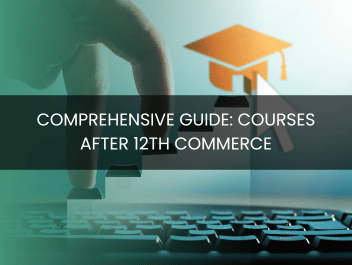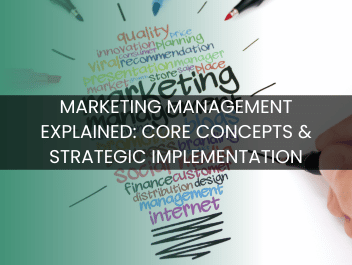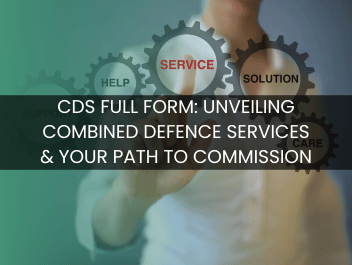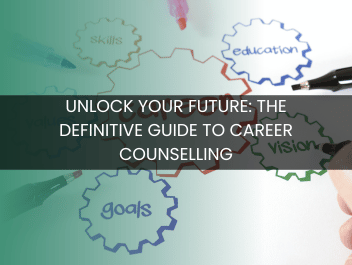
Mastering Your Sales Interview: 50 Essential Questions and Answers
Landing a sales position requires more than just a smile and a handshake; it demands a finely-tuned strategy to tackle the most challenging sales interview questions. For job seekers aiming to break into or advance within the competitive business world, mastering interview tips and preparing for a job interview are essential to stand out. Understanding how to give a good interview and effectively responding to common interview questions and answers, especially those tailored to sales, can make the difference between merely participating and truly excelling in the hiring process.
A sales interview is not just a test of your professional skills but also an opportunity to showcase your personal strengths and articulations behind your desired career path. Properly preparing for interview questions, especially the tough ones, such as those found in IT company interview questions or business interview scenarios, is crucial. The aid of mock interview examples and a robust interview guide may offer the necessary edge to surpass the competition, ensuring that you know how to give best interview responses when asked about, for instance, your motivations or handling customer complaints.
In this article, we explore 50 essential sales interview questions and answers that will not only help you get ready for an interview but also provide you with the tools to deliver the best answers with confidence. Whether you're curious about how to take an interview for a job or seeking tips on how to give a great interview, this comprehensive interview guide is designed to equip you with the knowledge and skills required for a successful face-to-face interview. Dive deeper and discover what are the 10 most common interview questions and answers, alongside in-depth strategies for tackling these during your sales career journey.
Table of Content
- 1. Introduction
- 2. Understanding the Role: Your Sales Career Vision
- 3. Personal and Professional Strengths
- 4. Articulating Motivations for a Sales Career
- 5. Building Rapport with Prospects
- 6. Handling Customer Complaints with Grace
- 7. Navigating Competitive Pricing Challenges
- 8. Demonstrating Teamwork in Sales Environments
- 9. Balancing Competition with Collaboration
- 10. Forward-Thinking Career Development
- 11. Adapting to Different Sales Scenarios
- 12. Responding to Objections Effectively
- 13. Time Management Skills in Sales
- 14. Leveraging Technology in Sales
- 15. Lead Generation Techniques
- 16. Negotiation Skills: Reaching Win-Win
- 17. Overcoming Rejection: Staying Resilient
- 18. Tailoring Sales Pitches to Different Audiences
- 19. Success Stories: Sharing Sales Achievements
- 20. Researching Competitors and Market Trends
Introduction
Navigating the world of sales interviews can be daunting, but preparation is key to success. Understanding sales interview questions is crucial. Preparing for a job interview involves researching common interview questions and answers, especially for freshers.
"How do I get ready for an interview?" The answer lies in studying sales interview questions and answers. To attend an interview effectively, familiarize yourself with interview tips and techniques on how to give a good interview. It is important to prepare answers that reflect your experience and skills.
In a business interview, you might face technical questions asked in interview contexts, as well as business interview questions and answers. The best answer often showcases your problem-solving skills and understanding of sales strategies.
Consider mock interview examples to build confidence. During the interview process, communication skills are key. Understanding how to go for an interview and how to face face-to-face interview questions can set a strong candidate apart.
Incorporate common viva questions and answers as part of your interview guide, and you're on your way to giving a great interview. Let this introduction be your launchpad to a successful sale in your sales career journey.
Understanding the Role: Your Sales Career Vision
Embarking on a sales career requires a clear vision and understanding of the sales role. It's crucial for aspiring sales professionals to identify their career goals and how they align with the sales position they are considering. The sales role involves engaging with potential customers, setting sales goals, and mastering communication skills to excel in the interview process and beyond.
Key Aspects of a Sales Role:
- Sales Strategies: Develop effective methods to meet
customer needs and close successful sales.
- Communication Skills: Essential for building strong relationships and
influencing potential clients.
- Understanding Company Culture: Align with the company's values and
objectives to succeed as an ideal candidate.
- Sales Process: Familiarize yourself with the sales pipeline, from cold
calls to closing deals.
- Sales Manager Goals: Support and achieve the sales manager's
objectives to advance your career in sales.
Preparing for a job interview requires thorough knowledge of these elements. Utilize mock interview examples and interview tips to master common sales interview questions. Understanding your role and bringing your unique sales skills to the table will set you on the path to a successful sales career.
Personal and Professional Strengths
Understanding your personal and professional strengths is crucial for success. Personal strengths include qualities like resilience, empathy, and adaptability. These traits help you handle challenges and build strong relationships. Professional strengths involve skills like communication, problem-solving, and leadership. These skills enhance your ability to excel in your job and contribute positively to your team.
Examples of Personal Strengths:
- Empathy: Understanding others' feelings.
- Resilience: Bouncing back from setbacks.
- Adaptability: Adjusting to change effectively.
Examples of Professional Strengths:
- Communication Skills: Clearly expressing ideas.
- Problem-Solving: Finding effective solutions.
- Leadership: Inspiring and guiding a team.
|
Strength Type |
Example |
|
Personal |
Empathy |
|
Personal |
Resilience |
|
Professional |
Communication |
|
Professional |
Leadership |
Identifying and leveraging these strengths helps you grow both personally and professionally. It makes you a valuable asset to your company and improves your relationships with colleagues and clients. Understanding these strengths also guides career development and sets the foundation for achieving your career goals.
Articulating Motivations for a Sales Career
Articulating motivations for a sales career requires insight and clarity. When considering a career in sales, candidates should reflect on their personal goals and strengths. Passion for communication and a strong drive to achieve targets are essential. Sales positions demand persistence, especially when making cold calls or handling rejections.
Prospective sales professionals should highlight their excitement for building relationships with potential customers and understanding their needs. Expressing a desire to contribute to the company's sales pipeline and impact its bottom line can position you as an ideal candidate.
Consider these motivations for a career in sales:
- Passion for helping customers find solutions.
- Thrill from closing a successful sale.
- Desire for a rewarding career with clear sales goals.
- Interest in honing sales strategies and techniques.
When preparing for a job interview, applicants should articulate these motivations clearly. This not only demonstrates alignment with the company culture but also helps convey that they are a strong candidate with a clear vision for their sales career.
Understanding and communicating these motivations can significantly enhance the interview process and help in standing out as a promising candidate.
Building Rapport with Prospects
Building rapport with prospects is crucial for a successful sale. It sets the foundation for trust and open communication, essential elements in closing deals. Here are some tips to effectively build rapport:
- Active Listening: Pay attention and show genuine interest in the prospect's needs and concerns.
- Empathy: Understand and relate to the prospect’s situation or challenges.
- Personalize Communication: Use their name and refer to previous interactions to make them feel valued.
- Be Authentic: Share your own experiences and stories to create a human connection.
- Positive Body Language: Maintain eye contact and open gestures to show engagement.
- Consistency: Follow up as promised to demonstrate reliability.
Quick Tips for Building Rapport:
- Smile Naturally: It subconsciously creates warmth.
- Focus on Common Interests: This fosters connection and familiarity.
- Ask Open-Ended Questions: Encourages conversation and deeper
understanding.
Building rapport is an ongoing process that involves nurturing relationships over time. The better the rapport, the more likely you are to become a trusted advisor and secure a successful sale.
Handling Customer Complaints with Grace
Handling customer complaints with grace is crucial for maintaining a positive brand image and fostering customer loyalty. Here are some interview tips on how to attend interview questions related to customer service roles:
- Listen Actively: During the interview, you might face role-play scenarios. Show your communication skills by listening carefully to customer concerns.
- Empathize: Express understanding and empathy towards the customer's experience. This helps in building rapport and trust.
- Stay Calm: Regardless of the intensity of the complaint, maintaining composure is key. Mock interview examples often include challenging situations to test this skill.
- Offer Solutions: Suggest practical solutions quickly and effectively. Demonstrating problem-solving abilities can impress the hiring manager.
- Follow Up: After addressing the issue, ensure to follow up. This shows commitment to customer satisfaction.
Here's a quick guide on common interview questions and answers for handling complaints:
|
Question |
Best Answer Example |
|
How do you handle difficult customers? |
I listen actively, empathize, and offer solutions. I ensure follow-up for satisfaction. |
By preparing for a job interview with these strategies, you can enhance your customer service approach and shine during face to face interview questions.
Navigating Competitive Pricing Challenges
Navigating competitive pricing challenges in today's market can be complex. Businesses must develop strategies to stand out while maintaining profitability. Key strategies include:
- Understanding Your Market: Conduct market research to understand competitors' pricing and the value proposition they offer. Knowing where your product fits helps in setting competitive prices.
- Value-Based Pricing: Focus on the unique benefits and features of your product. Customers often pay more if they perceive greater value.
- Flexibility and Adaptability: Be ready to adjust prices based on market changes. This adaptability helps maintain market share.
- Leveraging Technology: Use pricing software to monitor competitive pricing and adjust accordingly. This tech ensures you stay competitive in real-time.
- Customer Relationships: Build loyalty through excellent service, which can justify a premium price.
Here’s a quick comparison of strategies:
|
Strategy |
Key Focus |
|
Understanding Market |
Competitor analysis and positioning |
|
Value-Based Pricing |
Product uniqueness and customer value |
|
Flexibility |
Price adjustments for market changes |
|
Technology Use |
Real-time pricing adjustments |
|
Customer Relationships |
Loyalty through service |
By implementing these strategies, businesses can confidently navigate competitive pricing challenges, ensuring they remain relevant and profitable.
Demonstrating Teamwork in Sales Environments
In sales environments, teamwork is crucial for achieving success. Teamwork involves collaboration among sales team members to meet common sales goals. A strong sales team can handle complex sales processes more efficiently.
Key Aspects of Teamwork in Sales:
- Communication Skills: Clear communication helps in understanding customer needs and delivering the right sales pitch.
- Role Clarity: Each team member should know their role within the sales pipeline and how they contribute to the team’s success.
- Shared Goals: Aligning individual and team career goals ensures everyone moves in the same direction.
- Support and Motivation: Team members should support each other during the ups and downs of the sales process.
- Problem-Solving: Working together to find solutions during sales challenges improves overall performance.
Example Sales Team Structure:
|
Role |
Responsibility |
|
Sales Manager |
Oversees the team and sets strategic sales goals. |
|
Sales Professional |
Executes sales strategies and manages client relationships. |
|
Sales Support |
Assists in administrative tasks and customer queries. |
In a sales environment, demonstrating teamwork can make the difference between a mediocre and a successful sale, ultimately fostering a positive company culture and achieving outstanding business outcomes.
Balancing Competition with Collaboration
Balancing competition with collaboration is key to success in today's dynamic business environment. Companies must foster a culture where both thrive, leveraging the strengths of each approach.
Competition drives innovation and encourages team members to excel. It pushes individuals to reach their top performance levels. However, too much competition can lead to unhealthy rivalries and stress.
On the other hand, collaboration promotes teamwork and idea sharing. It capitalizes on diverse skills and perspectives, leading to holistic problem-solving and creativity. Yet, excessive collaboration might slow decision-making and dilute accountability.
To strike the right balance, organizations can implement the following strategies:
- Set Clear Goals: Establish both individual and team objectives.
- Encourage Open Communication: Create an environment where everyone feels heard and valued.
- Promote Healthy Competition: Organize friendly contests or challenges with recognition for success.
- Foster Teamwork: Encourage cross-functional projects to enhance collaborative efforts.
In conclusion, by carefully managing the balance between competition and collaboration, businesses can harness the full potential of their teams, ultimately leading to higher productivity and innovation.
Forward-Thinking Career Development
In today’s rapidly changing job market, forward-thinking career development is essential. It involves strategic planning and adaptability to emerging trends.
Here are some key steps to enhance your career development:
- Set Clear Goals: Define your career goals and break them down into achievable steps.
- Continuous Learning: Stay updated with new skills and technologies in your field. Online courses and workshops are excellent resources.
- Networking: Build a strong professional network. Engage with industry peers and mentors who can offer guidance.
- Embrace Technology: Familiarize yourself with digital tools and platforms relevant to your industry.
- Adaptability: Be open to change and ready to pivot when necessary. Flexibility is crucial in today’s job market.
- Seek Feedback: Regular feedback from peers and supervisors can provide insights and areas for improvement.
Career Development Table
|
Strategy |
Action |
|
Goal Setting |
Define clear objectives |
|
Continuous Learning |
Enroll in courses |
|
Networking |
Attend industry events |
|
Embrace Technology |
Learn new tools |
|
Adaptability |
Stay flexible |
|
Seek Feedback |
Request evaluations |
By implementing these strategies, you can effectively navigate and excel in your career, embracing a forward-thinking approach.
Adapting to Different Sales Scenarios
Adapting to different sales scenarios requires flexibility and strategic thinking. Sales professionals encounter various situations that demand quick adaptation and tailored approaches. Essential sales skills include understanding diverse customer needs, offering effective solutions, and altering sales strategies based on evolving conditions.
Here is a list to help adapt to different sales scenarios:
- Identify Customer Needs: Assess what your potential customer is seeking. Understanding these needs allows you to tailor your pitch effectively.
- Adjust Communication Style: Some clients appreciate data-driven discussions, while others focus on relationship-building. Adapt your communication style accordingly.
- Leverage Technology: Use tools to analyze market trends and customer behavior, ensuring your strategy is data-informed.
- Prepare Alternative Solutions: Enter conversations with multiple options so you can pivot if the initial approach doesn’t resonate.
- Stay Informed: Keep up with industry changes and competitors. A well-informed professional can shift tactics as required.
By staying agile and tweaking sales strategies, professionals can handle varied scenarios effectively, ensuring successful sales through excellent communication skills and a deep understanding of customer needs. This leads to a sustainable sales career.
Closing Strategies: Sealing the Deal
Closing sales is an art every salesperson should master. Here are some effective strategies to seal the deal:
- The Assumptive Close: Act as if the potential customer has already decided to buy. Phrase your questions like, "When would you like the delivery?" This strategy is effective when done with confidence.
- The Summary Close: Summarize the key benefits and features discussed. This helps the customer see the value clearly.
- The Urgency Close: Create a sense of urgency. Mention that the offer is limited or that prices may increase soon.
- The Question Close: Ask open-ended questions to ensure the buyer's concerns are addressed. For instance, "Is there anything else you'd like to know before making your decision?"
- The Option Close: Provide two or more choices, guiding the customer towards a decision. Example: "Would you prefer the standard or deluxe model?"
These strategies rely on strong communication skills and understanding your potential customer's needs. Mastering these techniques can enhance your sales experience and increase your success in closing deals.
Responding to Objections Effectively
Responding to objections effectively is a critical skill for anyone pursuing a career in sales. When potential customers voice concerns, addressing these objections can make the difference between a successful sale and a lost opportunity.
Key Tips for Handling Objections:
- Listen Actively: Pay close attention to the concerns. This can help understand the root of the objection.
- Empathize: Acknowledge the customer's feelings and show empathy for their concerns.
- Clarify Questions: Ask questions to ensure you fully understand the objection. This can help in providing a specific and effective response.
- Provide Solutions: Offer clear resolutions to the issues raised. Focus on how the product or service meets their needs.
- Stay Calm and Positive: Maintain a positive attitude and remain calm throughout the conversation.
- Summarize and Confirm: Recap the objection and how it was addressed to ensure the customer feels heard and understood.
By following these steps, sales professionals can improve their communication skills and increase the chances of a successful sale, ultimately contributing positively to their sales career and achieving sales goals efficiently.
Time Management Skills in Sales
Time management is crucial for success in a sales career. Effective time management enhances productivity and maximizes sales opportunities. Here are some key time management skills for sales professionals:
- Prioritization: Identify high-priority tasks daily to focus on what drives sales goals.
- Planning: Use calendars and to-do lists to organize your schedule, ensuring you allocate time for client meetings, follow-ups, and cold calls.
- Goal Setting: Establish daily, weekly, and monthly targets to achieve your sales pipeline objectives.
- Delegation: Whenever possible, delegate non-essential tasks to concentrate on activities that directly impact sales.
- Avoiding Procrastination: Tackle challenging tasks first to maintain momentum throughout the day.
- Technology Utilization: Employ sales software for automation and efficiency—like CRM tools—to track leads and manage customer relationships.
- Regular Breaks: Short breaks improve focus and prevent burnout, leading to more successful sales pitches.
By mastering these skills, sales professionals can manage their time effectively and improve their sales performance. In conclusion, being disciplined in time management can significantly impact your success in meeting sales strategies and business goals.
Leveraging Technology in Sales
Leveraging technology in sales is crucial to staying ahead in today's competitive market. Sales teams can use customer relationship management (CRM) software to organize client information and enhance communication. This not only helps in tracking potential customers but also in understanding their needs and preferences.
Incorporating artificial intelligence (AI) in the sales process can predict customer behavior and tailor sales strategies. For example, AI can analyze data from previous roles and sales experiences to refine sales goals and approaches.
E-commerce platforms and social media are essential for reaching a wider audience. They allow sales professionals to make cold calls and deliver a compelling sales pitch more efficiently. By utilizing these tools, a sales team can improve its sales pipeline and communication skills, generating more successful sales.
Here’s a quick list of how technology aids sales:
- CRM software for client management.
- AI for predicting customer behavior.
- E-commerce and social media for broader reach.
Enhancing sales strategies with technology aligns with company culture and meets career goals for both sales managers and professionals. By embracing these digital tools, sales roles become more efficient and rewarding, leading to a thriving sales career.
Understanding Customer Needs Thoroughly
Understanding customer needs thoroughly is crucial in any sales role. For sales professionals aiming for a successful sale, grasping what the potential customer genuinely desires can set you apart. Here’s how you can ensure that you are meeting customer needs effectively:
- Active Listening: Pay attention to the customer’s words and emotions. This will uncover their true needs and preferences.
- Ask Questions: Querying customers helps in clarifying their requirements. Common sales interview questions often emphasize the importance of asking the right questions.
- Use a Needs Assessment: Conduct surveys or assessments to gather insights into customer expectations.
- Empathize: Position yourself in the customer's shoes. Understanding their challenges enables you to offer tailored solutions.
- Classify Customer Needs: Like in common interview questions and answers for sales roles, differentiating between basic and advanced customer needs is essential.
Here's a simple table to categorize customer needs:
|
Need Type |
Description |
|
Basic Needs |
Essential requirements for satisfaction |
|
Advanced Needs |
Additional desires for exceptional value |
Understanding and addressing these needs not only enhances customer satisfaction but also builds trust and loyalty, key components in a thriving sales career.
Presentation Skills: Engaging Prospective Clients
Mastering presentation skills is crucial for engaging prospective clients effectively. To leave a lasting impression, focus on these key elements:
- Know Your Audience: Understand the needs and interests of your potential clients. Tailor your presentation to address their specific concerns.
- Clear Structure: Organize your presentation with a clear beginning, middle, and end. This helps maintain audience attention and makes your message easy to follow.
- Compelling Storytelling: Use stories and anecdotes relevant to your client's industry to make your points more relatable and memorable.
- Visual Aids: Incorporate visuals like charts and slides to illustrate concepts and enhance understanding.
- Engaging Delivery: Use gestures, eye contact, and a confident tone to keep the audience involved. Pause occasionally to emphasize key points.
- Interaction: Encourage questions and feedback to create a two-way conversation. This shows you value the client’s input.
- Practice: Rehearse your presentation multiple times to refine your delivery and gain confidence.
By honing these presentation skills, you can effectively engage prospective clients, making your pitch compelling and persuasive.
Lead Generation Techniques
Lead generation is essential for any business looking to grow its customer base. Understanding effective techniques can boost sales and strengthen client relationships.
Top Lead Generation Techniques:
- Content Marketing: Craft blogs, eBooks, and whitepapers that address customer pain points. This establishes authority and attracts potential leads.
- Social Media Engagement: Platforms like LinkedIn and Instagram help target specific audiences, providing direct connections with potential customers.
- Email Marketing: Create personalized campaigns to nurture leads through the sales pipeline. Use attention-grabbing headlines and valuable content.
- SEO Optimization: Enhance your online presence by optimizing your website content for search engines. This increases visibility and attracts organic traffic.
- Webinars and Online Events: Host educational sessions to showcase expertise and generate interest among participants.
- Pay-Per-Click Advertising: Target specific keywords relevant to your business to attract high-intent leads.
- Referral Programs: Encourage existing customers to refer new clients by offering incentives.
Each technique has merit, but using them in combination can result in the most effective lead generation strategy. Businesses that understand their target audience can customize these techniques to maximize results.
Negotiation Skills: Reaching Win-Win
Negotiation skills are crucial for achieving win-win outcomes in both personal and professional settings. They enable parties to reach agreements that satisfy the interests of all involved. Effective negotiation requires clear communication, active listening, and empathy. Here are key elements to consider:
- Preparation: Understand the needs and goals of both sides before you start. Research thoroughly to know what you and the other party expect to achieve.
- Communication: Articulate your points clearly and actively listen to the other party's concerns and motivations. Maintaining open-ended questions good rapport helps.
- Problem-Solving: Focus on finding mutually beneficial solutions rather than trying to "win". Look for creative ways to meet both parties' needs.
- Flexibility: Be willing to compromise and adapt your approach as the conversation evolves. Staying rigid can lead to stalemates.
- Building Relationships: Foster trust and a positive working relationship for future negotiations. This can be more valuable than the immediate outcome.
By mastering these skills, negotiators can create scenarios where both parties feel satisfied, resulting in a lasting and positive impact. Successful negotiation is about collaboration and understanding, leading to sustainable agreements.
Overcoming Rejection: Staying Resilient
Overcoming rejection is a crucial skill, especially in competitive environments like sales. Staying resilient involves cultivating a positive mindset and learning from each experience. Here are some strategies to overcome rejection and stay resilient:
- Acknowledge Your Feelings: It's natural to feel disappointed after rejection. Allow yourself to process these emotions.
- Learn and Adapt: Each rejection teaches us something valuable. Evaluate what went wrong and strategize to improve future performance.
- Maintain a Positive Outlook: Focus on your achievements and set realistic career goals. This can boost confidence and prepare you for future challenges.
- Seek Support: Reach out to mentors or join groups with peers facing similar challenges. Sharing experiences can provide new insights and motivation.
- Practice Self-Care: Engage in activities that rejuvenate your mind and body. Exercise, meditation, or hobbies can help reduce stress.
Remember, every strong candidate faces setbacks. The key to success lies in persistence. Embrace rejection as a stepping stone, and continue pursuing your career goals with renewed vigor. Adopting these strategies can help build resilience and foster growth in any professional journey.
Tailoring Sales Pitches to Different Audiences
Tailoring sales pitches to different audiences is essential for a successful sale. To ensure your message resonates, it’s important to understand your audience's unique needs and pain points. This allows you to adjust your pitch to address those specific concerns.
Key Strategies for Tailoring Sales Pitches:
- Research Your Audience: Before attending an interview or meeting, gather interview information about the potential customer. Understanding their background, industry, and challenges will provide insights into their needs.
- Customize Your Message: Use the interview guide to craft your sales pitch. Highlight how your product or service can solve their problems, improve their sales process, or align with their career goals.
- Adapt Communication Style: During the meeting, adjust your communication style as per the audience's preference. For a face-to-face interview, observe non-verbal cues and adjust your approach accordingly.
- Prepare for Questions: Anticipate common interview questions and answers that your audience might have. This readiness shows you are a strong candidate and have in-depth knowledge of your sales strategies.
By implementing these strategies, sales professionals can effectively appeal to diverse audiences, thus increasing the chance for achieving their sales goals.
Success Stories: Sharing Sales Achievements
Success stories in sales can both inspire and educate. By sharing sales achievements, you can motivate your team and foster a culture of excellence. Here are some powerful sales success stories that demonstrate the impact of determination and strategy.
- Achievement through persistence: One sales professional, faced with constant cold calls rejections, decided to refine their approach. They focused on adapting their sales pitch to better understand potential customer needs. Over time, they achieved a 200% increase in conversion rates.
- Innovative sales strategies: A team revamped their sales process by integrating social media into their strategy. By connecting with prospective clients on LinkedIn and sharing valuable content, they expanded their sales pipeline and increased their sales by 30% within six months.
- Strong communication skills: During a challenging negotiation, a sales manager used clear and empathetic communication to close a deal. The manager’s ability to listen and address the client's concerns led to a successful sale worth millions.
These stories emphasize the value of persistence, innovation, and communication skills. They highlight how success in a sales career often comes from learning and evolving.
Researching Competitors and Market Trends
Researching competitors and market trends is essential for a successful business strategy. This process helps businesses understand the landscape, identify opportunities, and stay ahead of market shifts.
Start by analyzing competitors' products, pricing, and promotions. This information reveals strengths and weaknesses you can exploit. Look at their customer reviews to gain insight into what works and what doesn't.
Next, stay updated on market trends. Use industry reports, news, and social media to track changes. Tools like Google Trends can help identify popular topics within your market.
Consider creating a competitive analysis table:
|
Competitor |
Strengths |
Weaknesses |
Opportunities |
|
Competitor A |
Strong Branding |
High Prices |
Expanding Market |
|
Competitor B |
Innovative Product |
Looking For Job Satisfaction on the long run?
Please feel free to contact our experts
Call to ask any question
+91-9319336222Monday to Saturday
(9:00 AM to 8:00 PM)Resent Blogs
10 Things to Do During an Interview to Impress Your Future Employer
Learn MoreCrafting Your Personal Narrative: A Guide to Writing About Yourself
Learn MoreTop 10 Essential Interview Questions and Expert Answers for 2025
Learn MoreAce Your Next Interview: Essential Questions and Expert Answers for 2025
Learn MoreFirst-Time Manager Interview: Crucial Questions and Strategies for Success
Learn More150 Essential General Knowledge Questions for Interviews in 2025
Learn MoreMaster the Google Interview: Strategies for Success in 2025
Learn MoreHow Can You Describe Yourself Professionally? 5 Key Strategies You Need to Know
Learn MoreMastering the Art of How to Take Interview: Essential Techniques for Success
Learn More25 Essential HR Interview Questions and Answers PDF You Can't Ignore
Learn More7 Tips to Ace Your HR Screening Round and Land Your Dream Job
Learn More10 Essential Tips for Acing Your Interview Exam
Learn More5 Unique Interview Format Examples to Stand Out in Your Next Interview
Learn More5 Powerful Techniques for a Memorable Interview Introduction
Learn MoreMaster Your Next Interview with These Top Interview Preparation Apps
Learn MoreMastering the Art: Top Interview Questions for 12th Class Students
Learn More7 Must-Know Interview Questions for Freshers to Ace Your Job Hunt
Learn MoreMastering Interview Questions for HR Position with Answers: Strategies for Success
Learn More12 Essential Interview Questions for Recruiter Position You Should Prepare For
Learn More10 Must-Know Interview Questions UK Employers Love to Ask
Learn More10 Creative Interview Writing Examples to Spark Your Imagination
Learn More15 Essential Managerial Interview Questions for Freshers to Prepare
Learn More15 Unique Marketing Interview Questions You Haven't Prepared For
Learn More7 Key Strategies for a Successful Mock Interview Session
Learn MoreThe Ultimate Guide to Model Interview Questions: What You Need to Know
Learn More5 My Self Question Exercises to Unlock Your True Potential
Learn More10 Normal Questions That Can Spark Deep Conversations
Learn More15 Essential Personal Interview Questions for Freshers to Ace Your Next Job
Learn More10 Essential Phone Interview Questions You Can’t Afford to Ignore
Learn More15 Essential Sales Interview Questions and Answers for Freshers
Learn More7 Key Situational Interview Questions Every Employer Should Ask
Learn More15 Essential Software Developer HR Interview Questions You Need to Prepare For
Learn MoreMastering the Technical Interview: Essential Questions and Answers
Learn MoreTop Strategies for Responding to Tell Me About Yourself in a Student Interview
Learn MoreTop 10 Interview Questions and Expert Answers
Learn MoreMastering the Art of Interviewing: 50 Tough Questions and Smart Answers
Learn MoreHow to Ace Your Next Mock Interview: Tips and Strategies for Success
Learn MoreYour Ultimate Guide: 60 Insightful Questions to Ask Interviewers
Learn MoreCrafting the Perfect Response to Why Do You Want This Job?
Learn MoreUnique Ways to Tackle the Question Why Should We Hire You?
Learn MoreWhy Should We Hire You? - Top 10 Answers for Customer Service Roles
Learn MoreMastering the Art of Discussing Work Experience in Interviews
Learn MoreMastering Your Sales Interview: 50 Essential Questions and Answers
Learn MoreCareer Paths After 12th Commerce: Your Future Starts Here
Learn MoreExplore One-Year Courses After 12th for Non-Medical Students
Learn MoreQuick Career Paths: 2-Year Degree Courses After 12th for Fast-Track Success
Learn MoreComprehensive Guide: Courses After 12th Commerce
Learn MoreTop 10 Lucrative Courses to Consider After Completing Engineering
Learn MoreAdvancing Your Career: Top Choices After B.Tech in 2025
Learn MoreExplore Your Future: After CET Exam Which Course is Best for Aspiring Professionals?
Learn More5 Reasons Why After Inter CEC, Choosing the Right Course is Crucial
Learn MoreAfter PUC Which Course is Best for Aspiring Engineers? Explore Your Options!
Learn MoreUnlocking Your Future: Best Arts and Science Courses After 12th for 2025
Learn MoreWhy a Bachelor Degree in Commerce is Your Pathway to Success
Learn More15 Best Career Courses to Boost Your Earning Potential in 2025
Learn MoreEmerging Career Fields for 2025: What You Need to Know
Learn MoreExploring In-Demand Career Paths After 12th: Science, Arts, Commerce
Learn More15 Lucrative Science Careers You Should Consider
Learn MoreHigh-Paying Career Paths for Girls After 12th Commerce
Learn MoreTop 10 High Salary Career Courses After 12th Biology
Learn MoreTop 10 High-Paying BSc Specializations for 2025
Learn MoreExploring the Future: Innovative Career Paths for B.Tech Graduates in 2025
Learn MoreComprehensive Guide to B.Tech Specializations for MPC Graduates
Learn MoreUnlocking Your Potential: The Ultimate B Tech Job List for 2025
Learn MoreB.Tech Salary Insights: How Much Can You Earn Per Month?
Learn MoreEssential Business Courses After 12th: Your Guide to a Successful Career
Learn MoreHow Commerce Students Can Transition to BSc IT
Learn MoreExploring Career Paths After 12th: Your Guide to Success in 2025
Learn MoreCertainly! Here are 10 additional title ideas inspired by the list you provided
Learn MoreExploring Career Paths After Engineering: Your Guide to the Future
Learn MoreThe Ultimate Guide to Career Options Post-High School Graduation
Learn MoreDiscover the Top 10 Chemistry Courses After 12th That Lead to High-Paying Jobs
Learn MoreExplore the Best Diploma and Certificate Programs After 12th Commerce
Learn MoreCareer Paths for Computer Science Graduates: Top Opportunities to Explore
Learn MoreExplore Top Courses After 12th: Your Path in Science, Arts, or Commerce
Learn MoreTop 10 Courses After 12th Commerce for a Successful Career
Learn MoreTop Paying Professional Courses After 12th for Commerce Students
Learn MoreEmerging Career Paths After 12th Commerce Without Maths
Learn MoreExploring Career Paths After 12th Science: A Complete Guide
Learn MoreComprehensive Guide to Courses and Career Paths after 12th Grade
Learn MoreEmerging Career Paths in India: What to Expect in 2025
Learn MoreTop Diploma Paths for Students After Completing 12th Science
Learn MoreTop 15 Easiest High-Paying Jobs to Pursue in India by 2025
Learn MoreNavigating Your Future: Easy Degree Options After 12th
Learn MoreExploring Top Engineering Branches After 12th: A Comprehensive Guide
Learn MoreExploring Advanced Studies: Top Entrance Exams for Engineering Graduates
Learn MoreMBA Salary Insights: Top Packages and Compensation Trends in India
Learn MoreTop 15 Lucrative Careers in India for 2025
Learn MoreTop 10 High-Paying Jobs for Commerce Graduates Without Maths
Learn MoreTop 10 High Salary Courses After 12th PCB for Future Success
Learn MoreHigh-Earning Courses to Pursue After 12th Science in 2025
Learn MoreHigh Paying Career Paths for BiPC Students: Top 10 Courses to Consider
Learn MoreExploring High-Paying Engineering Degrees for the Future
Learn MoreExploring Integrated Courses After 12th: A Comprehensive Guide for Students
Learn MoreExploring Career Prospects: What Can You Do with a BBA Degree?
Learn MoreTop 15 In-Demand Professional Courses for Commerce Graduates in 2025
Learn MoreExploring Lucrative Job Paths for BBA Graduates in 2025
Learn MoreMBA Full Form Explained: Master of Business Administration & Its Strategic Career Value
Learn MoreBBA Full Form: The Definitive Guide to BBA Degrees, Admissions, & Career Paths
Learn MoreBCA Full Form Explained: Your Complete Guide to the Degree, Admission & Career Scope
Learn MoreIAS Full Form: Indian Administrative Service Explained & Its Pivotal Role
Learn MoreMBBS Full Form: Unraveling the Meaning Behind a Doctors Qualification
Learn MoreUPSC Full Form: Union Public Service Commission and Its Vital Role
Learn MoreBSc Full Form: Bachelor of Science & What It Means for Your Future
Learn MoreITI Full Form: What Exactly is Industrial Training Institute?
Learn MoreLLB Full Form: Your Ultimate Guide to Bachelor of Laws, Eligibility & Career Scope
Learn MoreIs There a True Computer Full Form? Unpacking the Popular Acronym
Learn MoreB.Tech Full Form Unpacked: Meaning, Scope, and Why It Matters for Your Career
Learn MoreIIT Full Form: Unveiling the Indian Institute of Technology and Its Legacy
Learn MoreMCA Full Form Revealed: Master of Computer Applications & Its Significance
Learn MoreIIT Full Form: Indian Institute of Technology – Understanding Its Legacy, Campuses, and Global Standing
Learn MoreYour Complete Guide to Becoming a Veterinarian: Education, Specialties & Career Paths
Learn MoreBSc Degree: Your Complete Guide to Courses, Careers, and Future Prospects
Learn MoreB.Com Full Form Unveiled: What Bachelor of Commerce Truly Means
Learn MoreBAMS Full Form: Bachelor of Ayurvedic Medicine and Surgery — Unpacking Its Meaning & Career Scope
Learn MoreWhat is a Polytechnic? Your Complete Guide to Courses, Admissions & Career Paths
Learn MoreSSC GD Constable Exam News 2025-26: Latest Updates on Vacancies, Dates & Application
Learn MoreHow to Choose the Best Veterinarian for Your Pet: A Comprehensive Guide
Learn MoreAir Hostess 2026: Your Complete Roadmap to Landing the Dream Job
Learn MoreUnlocking Your Future: The Ultimate BSc Degree Guide (Courses, Careers & Admissions)
Learn MoreCMA Full Form: Certified Management Accountant (Global Standard Explained)
Learn MoreNACH Full Form Explained: What It Is & Why It Matters in Banking
Learn MoreThe Modern Anthropologist: Understanding Their Role, Impact, and Diverse Specializations
Learn MoreBBA: Your Ultimate Guide to Course Details, Admission, Fees, and Future Career Prospects
Learn MoreBDS Full Form Unpacked: Your Essential Guide to Dentistry Courses, Admissions & Career Scope
Learn MoreBHMS Full Form Revealed: Your Complete Guide to Bachelor of Homeopathic Medicine & Surgery
Learn MoreB.Tech Admissions 2026: Your Complete Guide to Courses & Eligibility
Learn MoreCFA Full Form: Understanding the Chartered Financial Analyst Designation
Learn MoreMerchant Navy Salary in India: Unveiling Pay Scales by Rank & Experience
Learn MoreTS EAMCET 2026: Official Notification, Exam Dates & Application Guide
Learn MoreVITEEE 2026: Full Guide to Application, Dates, Syllabus & Preparation
Learn MoreBMS Full Form: Unveiling Bachelor of Management Studies & What it Entails
Learn MoreB.Sc. Computer Science: Your Complete Guide to Courses, Careers & Eligibility
Learn MoreComputer Science Explained: From Basics to Advanced Concepts
Learn MoreWorlds Most Difficult Exams: A Definitive Ranking for 2025
Learn MoreUnion Public Service Commission (UPSC): All You Need to Know
Learn MoreBE Full Form Explained: What Bachelor of Engineering Means & Your Career Path
Learn MoreDMIT Full Form Revealed: Unpacking the Dermatoglyphic Multiple Intelligence Test
Learn MoreIndias Most Difficult Exams: The Ultimate Ranking for 2025
Learn MoreCLAT Full Form: Unveiling the Common Law Admission Test + Key Details
Learn MoreHighest Paying Jobs in India: Unveiling the Top 25 Roles & Their Lucrative Salaries
Learn MoreMA Full Form: Unpacking the Master of Arts Degree & What It Entails
Learn MoreMarketing Management Explained: Core Concepts & Strategic Implementation
Learn MoreBCA Course Subjects: A Comprehensive Guide to Your IT Degree Curriculum
Learn MoreCAT Exam Date 2026: When to Apply & Exam Schedule Revealed
Learn MoreCDS Full Form: Unveiling Combined Defence Services & Your Path to Commission
Learn MoreLab Technician Career Path: Duties, Skills, and Salary Guide
Learn MoreYour Complete Guide to Becoming a Successful Software Developer
Learn MoreAir Hostess Course Guide: Everything You Need to Know for Your Aviation Career
Learn MoreIntroduction: Navigating Your Path to Medical Excellence in India
Learn MoreTop Commerce Courses After 12th: Unlock Lucrative Career Paths
Learn MoreTop Industrial Training Institutes: Your Guide to Skilled Trades
Learn MoreUnderstanding Psychometric Tests: Your Definitive Guide & Free Examples
Learn MoreWhat Does a Surgeon Do? A Comprehensive Guide to the Profession
Learn MoreUG Explained: Your Ultimate Guide to Undergraduate Degrees & Admissions
Learn More10th Pass Govt Jobs 2026: Your Complete Guide to Apply & Secure Your Career
Learn MoreATMA: Your Complete Guide to the Management Admissions Test
Learn MoreBHMS Course Guide: Eligibility, Syllabus, Career Prospects & Top Colleges
Learn MoreUnlock Your Future: The Definitive Guide to Career Counselling
Learn MoreWhat Does a Clinical Psychologist Do? Your Comprehensive Guide
Learn MoreM.Tech Full Form: Master of Technology Explained (Meaning, Scope & Benefits)
Learn MoreRadiology Courses Explained: From Certificates to Masters Degrees
Learn MoreBSc Courses Explained: Full Guide to Specializations, Admissions & Career Paths
Learn MoreBSc Nursing Course: Admission Guide, Eligibility, Syllabus & Career Paths
Learn MoreBA LLB Full Form Explained: Unpacking Bachelor of Arts & Bachelor of Laws
Learn MoreTop BBA Colleges in India: Unveiling the Elite Institutions for Your Management Degree
Learn MoreUPSC CDS Exam Date 2026: Complete Schedule & Notification Details
Learn MoreTop Career-Focused Courses After 12th Grade: Unlock Your Future
Learn MoreExplore the World of Humanities Subjects: A Comprehensive Guide
Learn MoreIPU CET 2026: Complete Guide to Applications, Syllabus & Cutoffs
Learn MoreISI Full Form: Unveiling the Meaning & Importance of the Indian Standards Institute
Learn MoreJEE Advanced 2026 Exam Date: When Will the Exam Be Held?
Learn MoreJEE Main 2026 Result Date: When to Expect Session 1 & 2 Results
Learn MoreMCA Course Guide: Everything You Need to Know About Eligibility, Fees, and Admissions
Learn MoreMultimedia Explained: Your Complete Guide to Definition, Examples, and Impact
Learn MoreThe Ultimate Paramedical Courses List: Find Your Perfect Career Path
Learn MorePharm.D. Program: Your Complete Guide to Curriculum, Admissions & Outcomes
Learn MoreThe Ultimate Guide to Top IIT Colleges in India: Ranking, Admissions, and Courses
Learn MoreATC Full Form: Unpacking Air Traffic Control, Anatomy & More
Learn MoreB.Ed. Course Duration in India: Everything Aspiring Teachers Need to Know
Learn MoreB.Sc Psychology Degree: Your Guide to Admissions, Curriculum & Career Paths
Learn MoreB.Tech Computer Science: Your Complete Guide to Admission, Syllabus & Career Prospects
Learn MoreBDS Course Duration: How Long is Bachelor of Dental Surgery?
Learn MoreBFA Full Form Explained: What is a Bachelor of Fine Arts & Why it Matters
Learn MoreConnet Us
Unlock Your Dream Career Potential - Get Expert Advice From Our Counselling Experts























































































































_Thumbnail_.png )
_Thumbnail_.png )














_All_You_Need_to_Know_Thumbnail_.png )
























_Thumbnail_.png )























